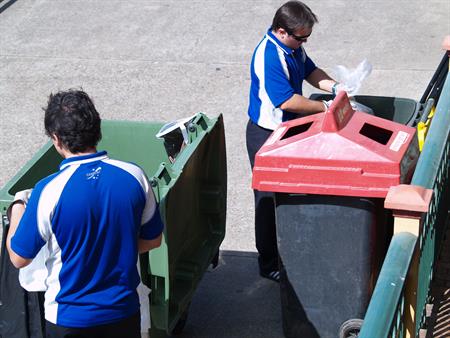As an environmental contractor you need to understand what 'waste' is and how can be minimised, what constitutes pollution, how waste is disposed of through natural processes and how to harness those processes to better manage waste disposal.
Environmental waste processing activities includes: Collecting. sorting, recycling or disposing of commercial, domestic and industrial waste; Street cleaning; Nuclear fuel and waste and its disposal; water and its treatment.
Job Opportunities

Where could you work
- Recycling Plant
- Rubbish collection
- Relocation of Waste
- Waste treatment
Remuneration and Advancement
Remuneration varies according to the work level and the industry sector. Best prospects may be self employment as a contractor or work for a contractor.
How to Distinguish Yourself and get the Work
Understand the industry sector - those working in nuclear waste will need a different set of skills and education to those working in domestic waste.
Risks and Stress Rating
Risks vary according to the industry sector for example working with the removal and collection of asbestos will have a greater risk than working in the collection of domestic waste.
Insurance
To work as a contractor in this field, you should consider personal indemnity insurance. A Professional Indemnity policy aims to shield the professionals assets in the event of a claim, therefore ensuring that he/she is able to carry on their business. Most of the roles mentioned above are not filled by contractors and are more commonly recruited as casual or permanent positions. To minimise risk of liability, you must investigate and learn about the legal and professional requirements for practising in this field.
Check the following link to view an outline of the types of courses you could do to gain a better grounding in what this industry involves:
Environmental Waste Management